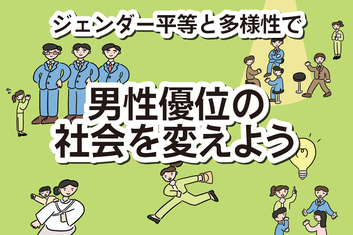Why, then, did the bilateral relationship suddenly appear to deteriorate? I believe the answer lies in the Department of Defense and the long history of the American military presence in Japan. The bilateral security relationship is certainly of great benefit to both nations, and the existence of American military bases in Japan is a key part of that relationship. However, it is also true that the United States has gotten a very good deal in Japan, and especially on Okinawa. The Japanese government provides substantial financial support for the bases, and local issues (noise, pollution, and crime) have been largely ignored by LDP governments over the years. I believe the Defense Department became very complacent about the favorable deal for American bases in Japan.
One exception appeared to be uproar created by the horrific rape case in 1995, which led to the agreement to reduce the American “footprint” in Okinawa. As part of that agreement, the Japanese government obviously had difficulty in working out a deal with the Okinawa prefectural government concerning the relocation of Futenma (considering that the original agreement with the United States was reached in 1996, but the details were not finalized until 2006). But this problem was largely between the central government and the prefecture. Meanwhile, the Americans continued to use Futenma.
Now the Defense Department faces a new government that is not as compliant, but DOD is very reluctant to renegotiate any aspect of the existing agreement on Futenma, or other aspects of the American presence in Japan. If one truly believes in the strategic value of keeping a Marine Corps helicopter base in Okinawa, then perhaps this reluctance is understandable. However, I think that strategic importance is somewhat exaggerated. The real issue is inertia; a simple desire to keep the existing favorable treatment of American bases.
All this reminds me of bilateral trade negotiations in the mid-1990s. For many years the U.S. side occasionally used (or threatened to use) unilateral retaliatory actions to restrict imports as part of its bargaining tactic to open markets in Japan, and the Japanese government always made eventual concessions. Suddenly the Japanese government fought back—as in its decision to challenge the United States at the WTO when the Clinton administration imposed punitive tariffs on luxury cars from Japan in June 1995 (to pressure the Japanese government in negotiations to improve foreign access to the car market in Japan). Once the Americans got over the initial shock, they adjusted to the new reality. The Defense Department needs to get over its shock and adapt to a new reality as well. In the end, neither government will get as much as it wants on maintaining or changing the framework for American bases, but compromise is the essence of a close relationship.
■「WEDGE Infinity」のメルマガを受け取る(=isMedia会員登録)
週に一度、「最新記事」や「編集部のおすすめ記事」等、旬な情報をお届けいたします。

















